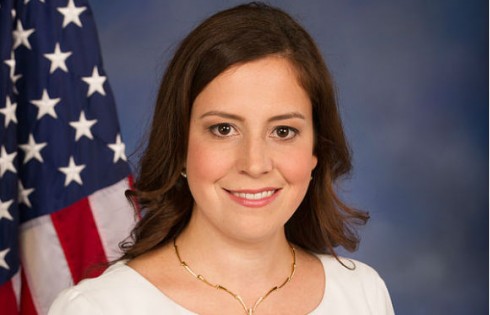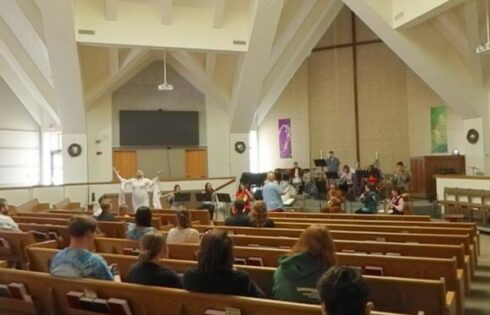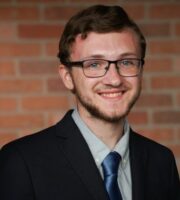
Watchdog groups warn about government policing ‘inconvenient truths’ online
Clemson University is using federal funds to create technology meant to track what researchers consider to be patterns of “mis-, dis-, and mal-information (MDM)” by internet users.
Researchers said they are taking steps to ensure their work is unbiased, but two watchdog groups argued the project could be used to silence speech online.
The Clemson project, “Networks and Pathways of Violent Extremism: Effectiveness of Mis/Disinformation Campaigns,” is funded by a $953,203 grant from the Department of Justice’s National Institute of Justice.
The researchers plan to map the spread of these campaigns “around contentious public events” in real-time, according to an abstract. They will create “an online dashboard with an MDM tracker that allows users to understand real-time campaigns and their diffusion.”
Clemson described a disinformation campaign as “a coherent pattern of sustained false or inauthentic information created with the intent to deceive” in a statement to The College Fix.
“The grant seeks to help policy makers, law enforcement officials, and community stakeholders understand how social media dis/mis information campaigns operate,” the university stated.
“This will include identifying the type of events most likely to be the target of disinformation campaigns and identifying the characteristics, patterns, and methods of the organizations and other actors engaged in these campaigns,” the university told The Fix.
Another term used in the research project, “malinformation” is defined as “information that may be based on fact, but used out of context to mislead, harm, or manipulate,” according to a Department of Homeland Security report.
Arie Perliger, (pictured) a co-principal investigator for the Clemson project, told The Fix he plans to automate most of the research process to remove potential threats of bias.
“The process of identifying accounts connected to specific campaigns, for instance, will be conducted with off-the-shelf software that identifies and collects information about language, behavior, and interaction between accounts,” Perliger told The Fix in an email.
He said they also plan to use “tools specifically designed to reduce researcher bias and increase validity of results.”
Perliger said the team’s definition of “disinformation campaign” is likely to be “refined” in later stages of the project.
A political scientist at the University of Massachusetts at Lowell, Perliger is the author of “American Zealots: Inside Right-wing Domestic Terrorism,” which analyzes “white supremacists, antigovernment groups, and antiabortion fundamentalists, as well as the histories of the KKK, skinheads, and neo-Nazis.”
The lead investigator of the project, Ayse Lokmanoglu, is an assistant professor in Clemson’s communications department who also has extensively studied Islamic terrorist groups, white supremacists, and “far-right” movements, according to her CV.
The Fix asked Lokmanoglu twice in the past three weeks via email how her team intends to avoid political bias in its research but did not receive a response.
The Fix also followed up with Perliger to ask if anyone else is involved in leadership of the project, but he did not reply.
MORE: Stanford and U. Washington sued for censorship deal with feds
However, conservatives have raised concerns that academia and government agencies use terms such as “misinformation” to describe information and opinions they do not like.
“The federal government’s involvement in policing so-called ‘disinformation,’ or what some of us would call inconvenient truths, should send a chill down everyone’s spine,” Mike Davis, founder and president of the Internet Accountability Project, told The Fix. “And it’s plainly unconstitutional.”
Davis, former Chief Counsel for Nominations to U.S. Senate Judiciary Chairman Chuck Grassley, said censorship is a likely result of such projects.
“Leftists fear free speech and open debate, so they fight through their allies in the Washington bureaucracy to cancel those with whom they disagree,” he told The Fix.
The study is being conducted at Clemson University’s Media Forensics Hub, which works to “combat online deception with the goal of building society’s resilience to the dangers it poses,” the university said in its statement.
Its research addresses online scammers and “demonstrably false media, not the evaluation of who is right or wrong in authentic political or social disagreements,” according to the university.
But one watchdog group said the university’s “framing” is disingenuous and warned that “taxpayers are paying for a new technology designed to monitor their speech.”
“By using the framing that they are targeting ‘campaigns,’ they invoke images of a highly coordinated, organized effort to undermine national security,” the Foundation for Freedom Online wrote in a report about government censorship efforts. “This is a sleight of hand that the censorship industry regularly uses to persuade the public that ordinary Americans sharing their opinions online are part of nefarious ‘campaigns.’”
Clemson’s Media Forensics Hub and its collaboration with federal agencies also received scrutiny from U.S. Congressional Republicans.
Last year, House Judiciary Committee Chairman Jim Jordan of Ohio obtained records from the lab as part of a probe into social media censorship, The Tiger student newspaper reported.
The National Institute of Justice is sponsoring the Clemson study and others under a program aimed at addressing “domestic radicalization and violent extremism.”
The DOJ has not responded to multiple inquiries about the program since The Fix began investigating it in January.
MORE: Youngstown State ‘radicalization’ researcher says he’s studying ‘Extreme Left’ and ‘Extreme Right’
IMAGE: Brian_A_Jackson/Shutterstock, University of Massachusetts at Lowell
Like The College Fix on Facebook / Follow us on Twitter






Please join the conversation about our stories on Facebook, Twitter, Instagram, Reddit, MeWe, Rumble, Gab, Minds and Gettr.